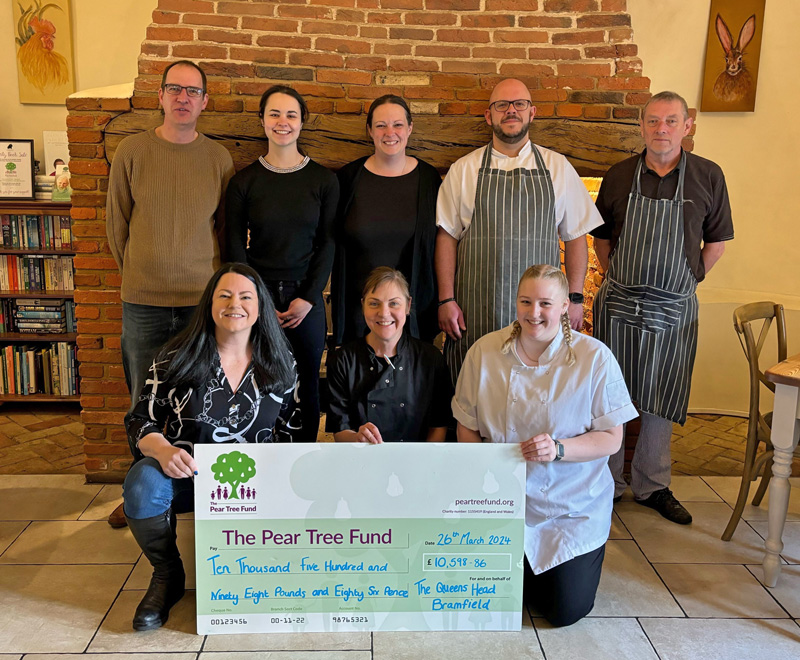
A pilot study providing grants of £100 for breaks for family carers is under way in parts of Suffolk to improve services for carers with the help of over one million pounds secured from the Department of Health.
Suffolk is one of 12 areas in the UK selected to trial short break opportunities which can have a huge impact on improving carers’ emotional well-being and quality of life.
Over 550 family carers from Ipswich, Brandon, Peasenhall and Sibton are expected to take part in a study called Time For You running from Jan 2010 until March 2011. The aim is to identify family carers who may – for a variety of reasons – not be using the services that are currently available. Each participant will be given a grant of £100 to spend entirely as they wish on a short break or respite from caring and will help complete a survey about the effectiveness of that short break on their well-being.
Throughout this study, the family carers will be consulted by trained researchers about the kind of respite they used the grant for and which support services they would most like to see developed, plus contributing to a website containing a wealth of information about short breaks.
In the parishes of Sibton and Peasenhall this study is being conducted by the community development charity Suffolk ACRE and its local researcher Nat Bocking. He will be visiting homes, community groups and businesses to distribute information about the study and to discover family carers’ needs and develop community-led responses to them.
Suffolk Family Carers – one of the leading organisations that support family carers in Suffolk – will be advising and training the community researchers, who will be drawing on and working with local networks to plan and develop innovative opportunities for short break services.
The study hopes to reach the many family carers who may be caring for someone but who do not already access the services available; so who may be unknown to statutory, health or social agencies but are plainly evident from other studies. Uncovering a hidden need requires researchers on the ground and community support to encourage participation. Suffolk ACRE’s strategy is to employ a trained, independent locally based researcher available to meet with family carers when and where it is most convenient for them.
The study starts with the researcher asking some simple questions to establish eligibility for the grant; about 90% of family carers are expected to be eligible if living in the study area. Then part one of the questionnaire is completed with the carer asked about their role and its demands and what sort of breaks they might take if they had a grant of £100 to spend as they wished. After part one is completed, an appointment is set for the researcher to return and a grant of £100 is paid to the family carer’s bank account. After the carer has taken a short break, part two of the questionnaire is completed to understand what impact it has made, if any. Although it is expected that carers will spend the grant on a break for themselves, there is no obligation to do that if other needs are more pressing. A respite can also be accessing education or arts and culture or it might be a shopping trip or visiting friends or attending to other personal needs.
Participation in the study is completely confidential and all information will be kept anonymous and Suffolk ACRE is completely independent of all other services and will not refer anyone or report names to any agency without the carer’s permission. This point will be emphasised in contact with people as service agencies find that family carers often don’t access the services provided for carers by statutory bodies because they think it may affect receipt of other benefits or, in the tradition of rural independence, many associate entitlement with taking charity or a stigma or don’t recognise how their caring role can affect their health and well-being. Sibton and Peasenhall have been selected because their population represents an average rural community so the study’s findings may significantly influence future service provision elsewhere.
An immediate outcome of the study will be a report by Suffolk ACRE into the provision of services locally, the extent of needs and the potential within the community to determine solutions themselves by accessing the many funds available and resources of other agencies and testing in a health and social care situation the models of community-led solutions used successfully elsewhere. As a leading community development charity, Suffolk ACRE would be best placed to take the results of the study forward if the community wished to.
Suffolk ACRE (Action with Communities in Rural England) is a charity and company limited by guarantee incorporated in 1997. It was established in 1937 to work with communities in Suffolk. Its mission is to tackle the economic, social and environmental needs of communities in Suffolk by forging effective partnerships between communities and agencies and promoting communal self-help. It is Suffolk ACRE’s aim to help communities in Suffolk to identify and tackle their needs through community action. Suffolk ACRE’s role is to support community groups, voluntary organisations to undertake self-help activities and enable communities to take ownership for their own well-being. www.suffolkacre.org.uk
For more info contact:
Nat Bocking MA MCE, Community Development Researcher, Suffolk ACRE.
Mobile: 07787258137
Email: [email protected]









